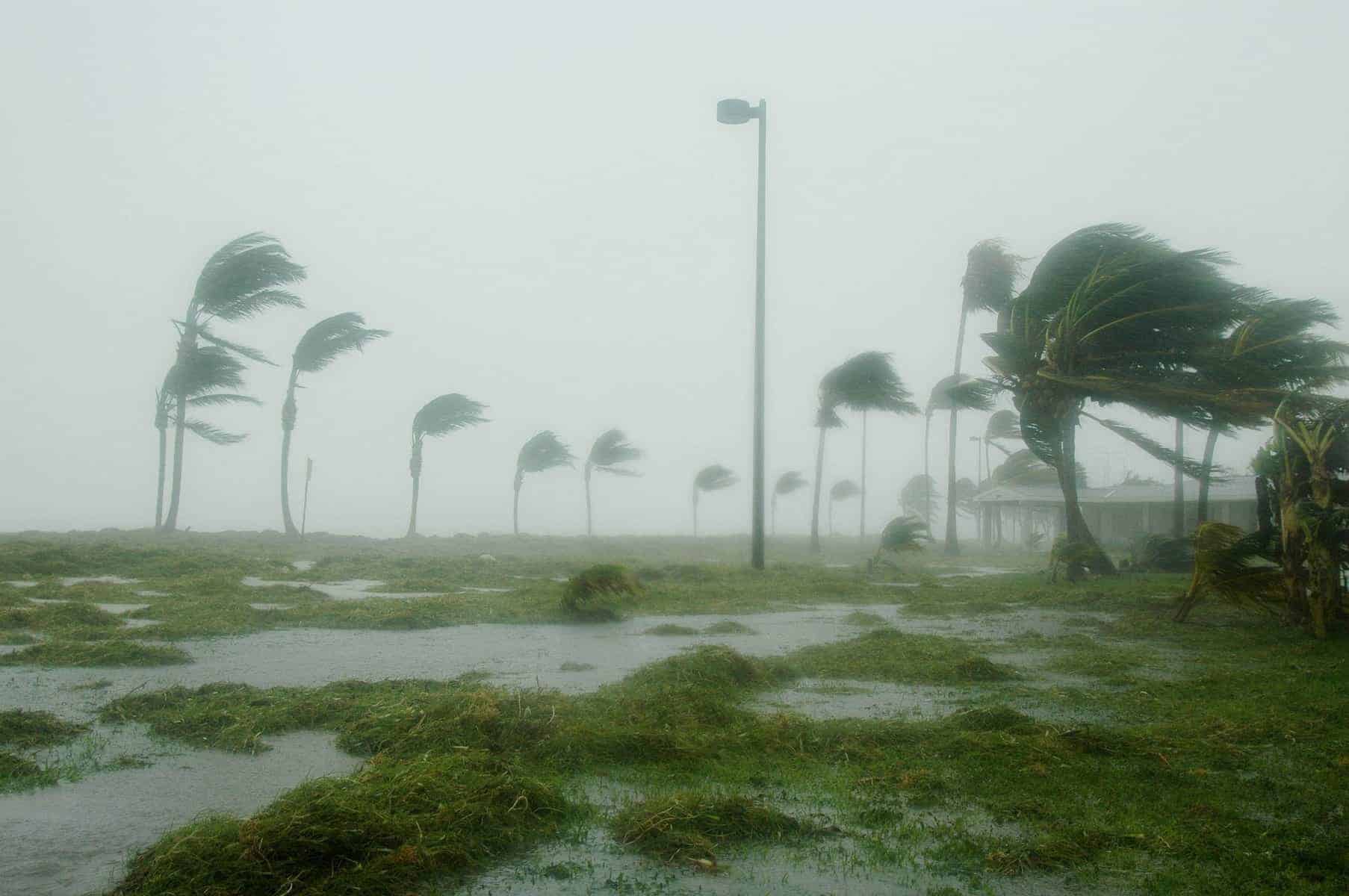Hurricane season is upon us once again. And for those of in Eastern North Carolina, every named storm brings back memories of Hurricane Florence—which decimated the area. With another storm- Hurricane Dorian- looming on the horizon, we are focused once again on hurricane preparedness. Even one year after Hurricane Florence there are people still living in FEMA trailers and awaiting home repairs or replacement. So what do we wish we had done differently? What are we glad we did? Here are some tips from those of us who lived through the event last year and have dealt with the aftermath ever since.
Hurricane Preparedness: Things to Know
Before Hurricane Season
Hurricane Insurance
- Make sure your homeowners or renters insurance is up to date. Call to check or go online.
- If you evacuate, bring a copy with you.
- Things you want to look for on your insurance are: Will they cover lodging during an evacuation, mileage to and from evac location, and food spoilage from your fridge being without power? These are usually paid as a reimbursement, so you will not see it beforehand. You will need to pay out of pocket and keep receipts.
Homeowners: What is your deductible? This is either a flat number or a percentage of the home’s value. Also, ask your insurance company if they cover water damage by driven rain. Most will not cover standing water that rises and enters the house since that would require flood insurance. Some will not cover water damage even if its from rain.
Renters: Does your insurance cover lodging? What are your landlord’s responsibilities? This is entirely dependent on your specific lease, and varies by state.
- Take pictures and video of everything in your house. Inside and outside. Photograph it all. If you have a drone, fly up above the roof and get a picture and video. This will be your most valuable asset in getting the right reimbursement for damage. If you have photo and video proof, the insurance company will not be able to claim anything as preexisting damage. This is especially important now for areas that have experienced recent hurricanes. It would be very easy for them to claim damage was never repaired from the last one.
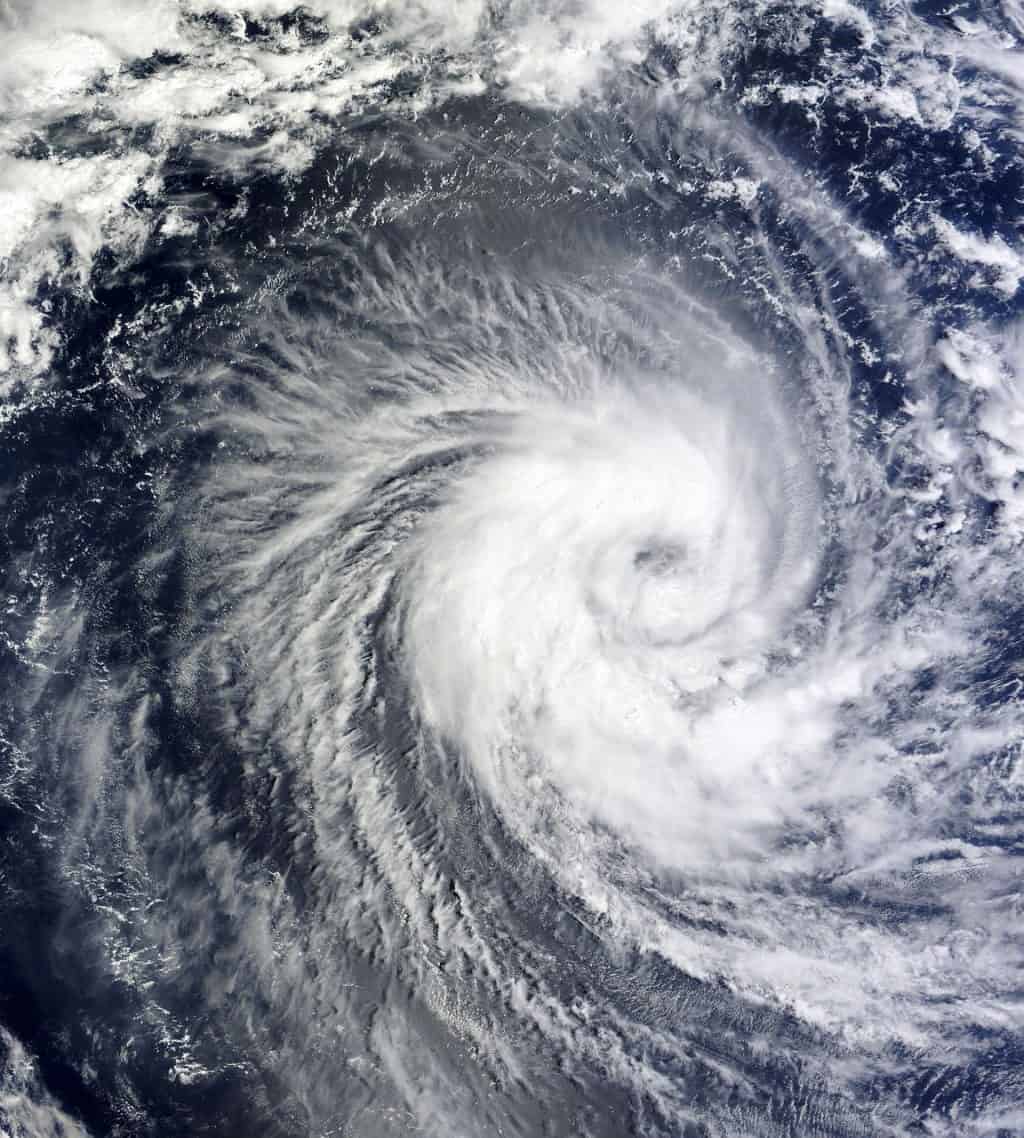
House Prep
- Bring everything inside. If you can pick it up off the ground, put it in the house. This includes little things like kids toys, but also large things like chairs, tables, temporary pergolas, canopies, and any other covering. All of these things become projectiles to plow into your or your neighbor’s house.
- Apply hurricane shutters if you have them.
- Make sure all windows and doors are securely closed and latched. Don’t invite the water in.
- If you have high-value artwork, consider removing it from the walls and covering it with plastic or better, plastic totes.
- If you’re in a flood area or have items you are particularly concerned about, move stuff upstairs. If your roof is damaged, this may not help at all as water would be coming in from above. But if you have time to prep, it removes one potential hazard.
- Put all the food in your fridge and freezer into a plastic garbage bag. If the power goes out for longer than a day, all that food will spoil and rot. Your fridge will reek to high heaven. But with everything in garbage bags, you can just grab it and toss it. If the power stays on, just take it all out when the storm has passed.
- Get cash and gas up your car now. If power is out, you may not be able to pay with a card or get cash later. If you stay, you’ll need gas for a generator or propane for a grill.
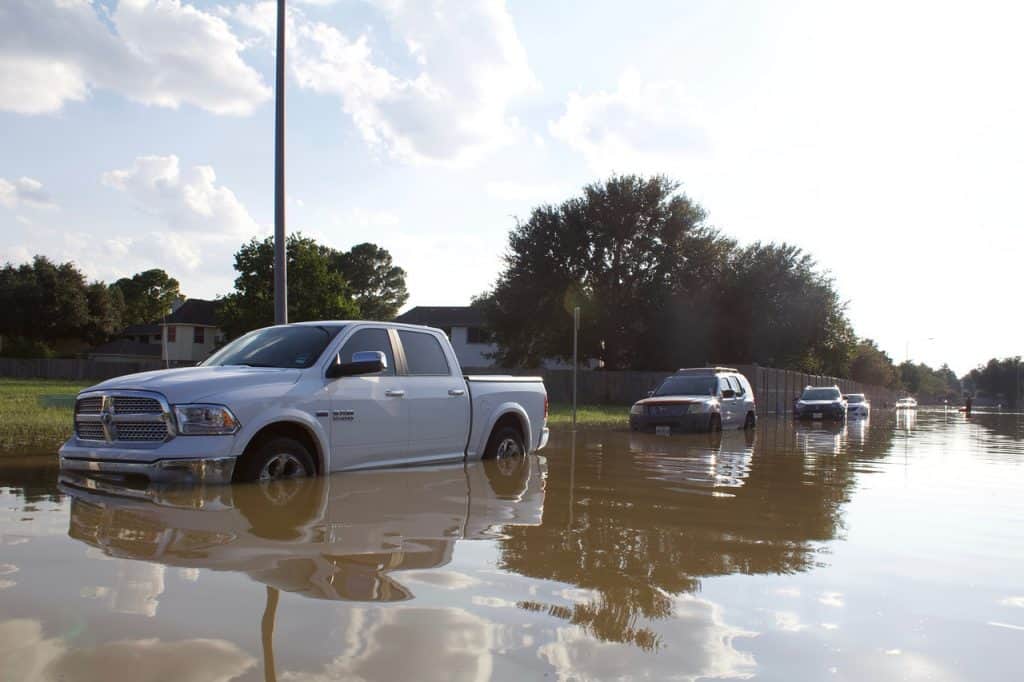
Hurricane Season Decisions
To stay or go is always the question. Decide for now the right answer for you. Some will not be able to leave because of work. Some will have to leave because of health. Only you can make the right answer for your family. Know that if you stay, you may be without power for over a week. This means no air conditioning, no charging of the cell phone, no cooking food on the stove, and no running water. You can mitigate several of these with a generator, but you will burn through gas to do so. Never ever run a generator inside!!!
RELATED: Disaster Prep: 8 Things to Have on Hand
If you stay
- Create a robust kit complete with solar chargers for cell phones, batteries, food, water, and first aid. There are numerous lists out there.
- Fill bathtubs with water for flushing toilets when necessary.
- Empty the ice maker and all ice from the fridge/freezer so it doesn’t leak all over your floor.
If you evacuate
- Turn off the water to your house before you leave.
- Empty the ice maker and all ice from the fridge/freezer so it doesn’t leak all over the floor.
- Take all important documents. Medical info, social security cards, birth and marriage certificates, animal shot records, etc.
- Take your photo albums and hard drives with photos with you. You may not be able to replace professional photos like wedding albums, and you definitely won’t be able to replace personally taken photos that aren’t backed up. So take the hard drives and albums with you or put them somewhere safe in the house and in a plastic tote.
- If your installation calls for an evacuation, you may be reimbursed for expenses and/or given a per diem rate. But this is only if the installation calls for it, not if the local area does.
This should go without saying, but take your animals with you. While the storm may only last a couple of days, the roads may be blocked for a week or more. Do not leave your animals to overheat and starve because you think you’ll be back soon.
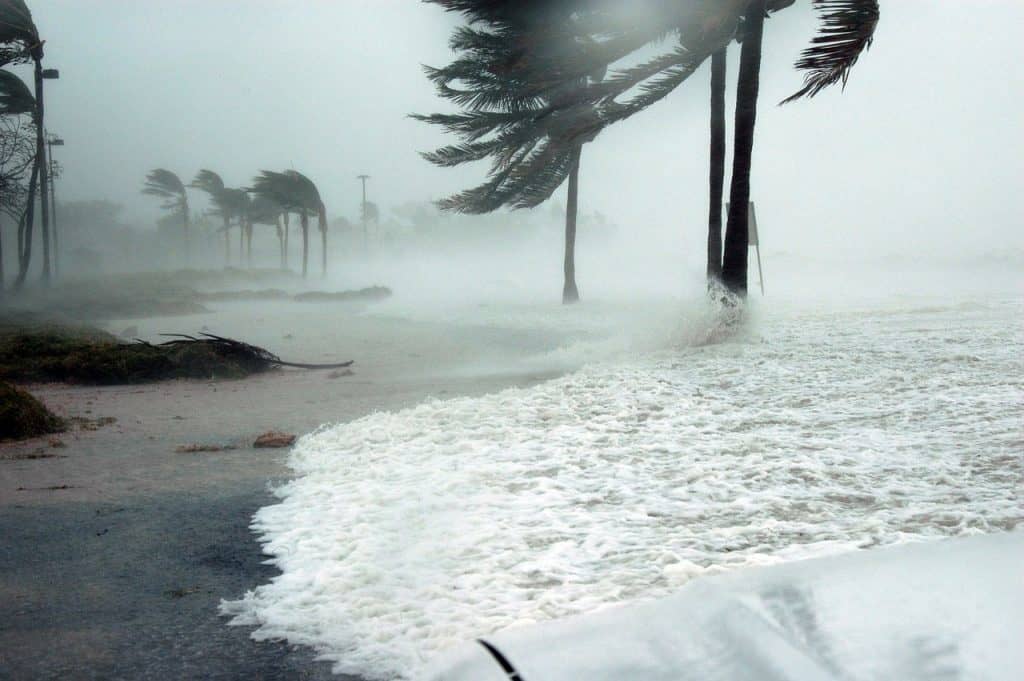
Hurricane Preparedness: During the Hurricane
If You Evacuated
Keep an eye on the news, join community Facebook pages, and know who stayed home. After Hurricane Florence, people who stayed behind helped check on other’s houses, sent videos of the neighborhood, and formed a neighborhood watch to keep an eye out for looting. Know who these people and pages are and keep an eye out for updates.
Cell phone towers may be out, so don’t freak out if your loved one who stayed hasn’t checked in at the right time.
If you suspect damage to your home, call your insurance company as soon as you possibly can. If you wait until you are able to get home and see the damage for yourself, you will already be behind thousands of other people and it will take a long time to get your claim processed. Calling while you’re evacuated means you will be higher on the list and an adjuster will be able to make it to you as soon as you are able to make it into the area yourself.
RELATED: Disaster: Helping Family From a Distance
If You Stayed
Hunker down during the storm and stay safe. Waiting is not fun, but there isn’t anything else to do. While you’re waiting, don’t open the fridge unless you have to to keep it as cool as long as possible. Don’t hang out on your phone wasting the battery. Take this time to read a book or do some crafts.
Know that cell phone towers will likely be out for some time. You can still change your voicemail to give people updates, but they may not be able to reach you. Just as in deployments or TDYs, no news is good news.
Use as little water as possible. Don’t flush toilets if you don’t have to, brush your teeth with minimal water, and no showers. If you are on a septic system and the power is out, the pump will not be working. This is a quick way to overflow or damage your septic system.
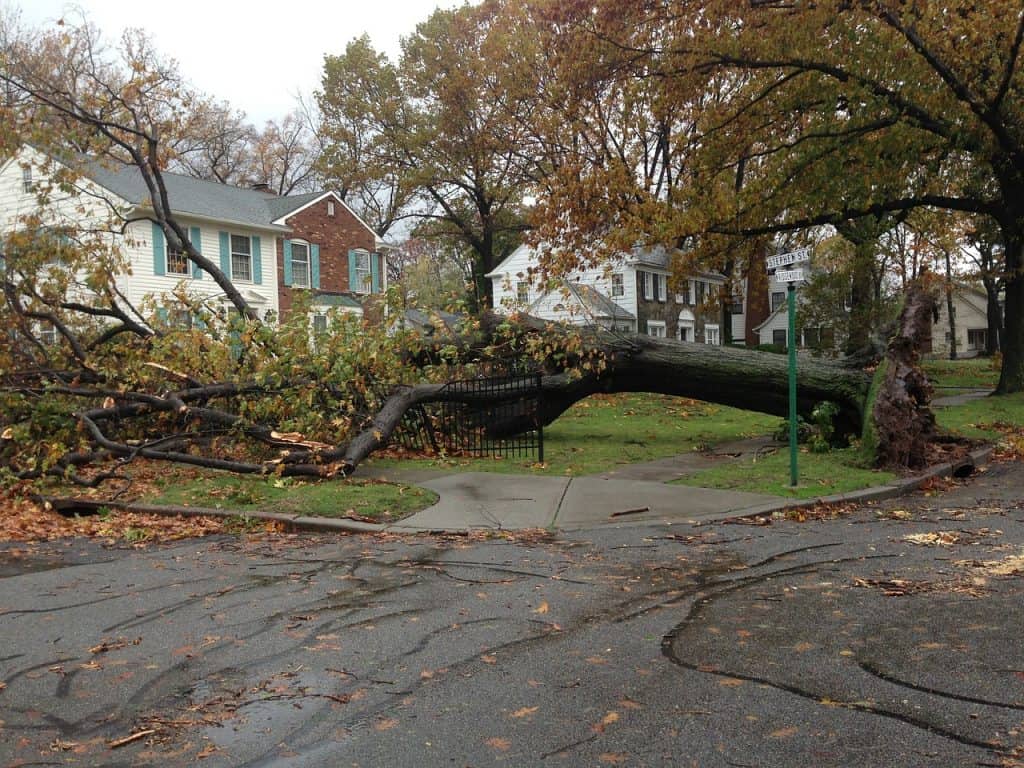
Hurricane Preparedness: After the Hurricane Passes
- Do not drive through flooded roads. Multiple people died trying to get in or out during Hurricane Florence because they drove through flooded roads. This is completely avoidable. Leave as early as you can and find a route without flooding. Don’t die because the extra 30 minutes would be inconvenient. Get back home when you can.
- Contact—or reconnect with—your insurance company if you haven’t done so already or if you need to do so.
- Repair all damage. Small leaks can turn into mold in no time, so repair all damage even if it seems insignificant.
- Keep on your contractor. They will very quickly be overwhelmed and may be difficult to get ahold of or workmanship can suffer.
- Expect emotional fatigue across the entire region. Even if people aren’t displaced, they are still in the area and dealing with all sorts of stress. Have extra grace for one another and those in your family.
- FEMA and the SBA are two organizations that help after disasters. Look to local government or chambers of commerce to put this information out as necessary. FEMA will initially deny your claim if you have insurance, but they may cover the extra things your insurance doesn’t later.
Multiple disaster response teams said a variation of the following: We’ve never seen an area recover as quickly as Eastern North Carolina. You were at least two weeks ahead of other areas for one simple reason. People banned together to help one another in droves. Recovery is a very VERY long process. You will still be dealing with it long after the media has forgotten. Just don’t miss the opportunity to see people coming together and helping one another like never before. Hold on to that glimmer of hope.
Hurricane season runs from June through November, and it’s not too late to get ready for the next storm. Learn from past hurricane seasons and other military families and make the best decision for your family, with the information you have. Most importantly: stay safe!
WANT TO READ MORE?
Check out Moving to Hurricane Territory: Here’s What You Need to Know
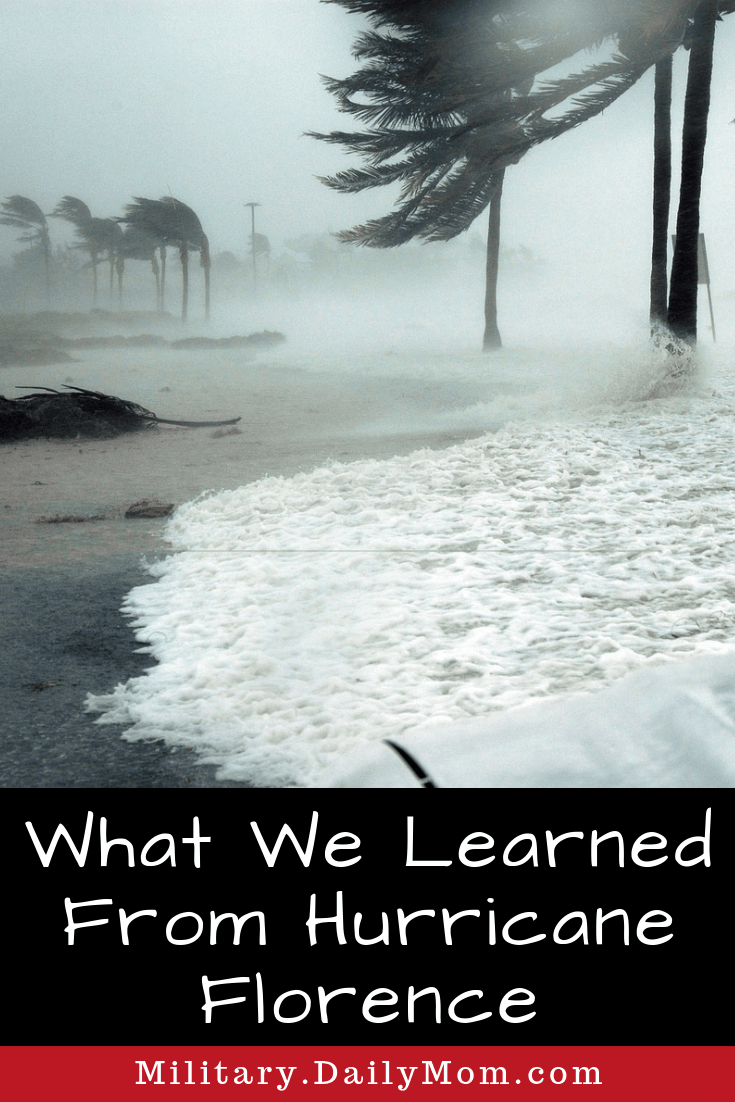
CONNECT WITH DAILY MOM
💖 NEWSLETTER: DAILY READS IN YOUR INBOX 💖
Sign up to receive our picks for the best things to do, see and buy so you can relax and focus on more important tasks! Let us help you be the best version of yourself you can be!
BE SOCIAL WITH US
📌 LOVE IT? PIN IT!📌
Photo Credit: Pixabay



































